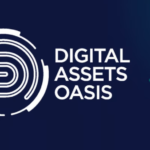As digital transformation reshapes industries worldwide, freelancers are increasingly exploring cryptocurrency as an alternative payment method. Cryptocurrencies, digital currencies based on blockchain technology, offer a decentralized and secure way to manage financial transactions. Among the most widely known is Bitcoin, launched in 2009 by the pseudonymous Satoshi Nakamoto. It introduced a peer-to-peer electronic cash system, enabling users to send and receive payments without intermediaries like banks. Other cryptocurrencies, such as Ethereum and Monero, have gained traction for their unique features, offering freelancers diverse options based on their needs.

Why Freelancers Are Turning to Crypto
The growing interest in cryptocurrency payments among freelancers stems from several key benefits:
- Global Payment Solutions:
Cryptocurrencies enable freelancers to receive payments from clients worldwide without relying on traditional banking systems. This eliminates delays and fees associated with international transfers, though it’s essential to understand local regulations regarding cryptocurrency use. - Lower Transaction Costs:
Freelancers working on smaller contracts often favor cryptocurrencies due to their lower fees compared to traditional payment methods. - Enhanced Privacy:
Cryptocurrencies allow users to share wallet addresses instead of sensitive personal information, reducing the risk of identity theft and fraud. - Security:
Advanced cryptographic techniques ensure that transactions are secure, while blockchain’s immutable nature prevents tampering. - Banking Alternatives:
In regions with limited banking infrastructure, cryptocurrencies provide a gateway for freelancers to access global markets, bypassing traditional financial barriers. - Financial Independence:
With cryptocurrencies, freelancers have complete control over their funds, eliminating reliance on banks or payment processors.

The Drawbacks of Crypto Payments
Despite their benefits, cryptocurrencies come with significant challenges for freelancers:
- Price Volatility:
Cryptocurrency values can fluctuate dramatically, potentially diminishing the value of earnings. This makes crypto payments risky for freelancers without a deep understanding of blockchain dynamics. - Limited Acceptance:
While adoption is growing, many clients and businesses are still unfamiliar with cryptocurrency payments, necessitating backup payment methods. - Conversion and Exchange Issues:
Converting crypto into fiat currency can involve additional steps, fees, and delays, making the process cumbersome for some freelancers. - Tax and Regulatory Concerns:
Navigating tax reporting and compliance for cryptocurrency transactions can be complex, with varying regulations across countries. Freelancers must stay informed about local laws to avoid legal complications. - Security Risks:
Although cryptocurrencies offer strong security, protecting wallets and private keys is the user’s responsibility. Hacking or loss of credentials can result in irreversible losses. - Technical Knowledge Requirements:
Using cryptocurrencies effectively requires understanding digital wallets, blockchain transactions, and private key management. Beginners must educate themselves to avoid costly mistakes. - Irreversible Transactions:
Unlike traditional banking systems, cryptocurrency transactions cannot be reversed, leaving users with little recourse in cases of fraud or error.
Conclusion
Cryptocurrencies offer freelancers unique opportunities to streamline payments, reduce fees, and access global markets. However, their volatility, technical complexity, and regulatory challenges demand careful consideration. Freelancers, especially those working on small contracts or part-time, may find cryptocurrencies beneficial, provided they research the most suitable options and stay informed about local laws. While Bitcoin is the most famous cryptocurrency, exploring alternatives like Ethereum or Monero can help freelancers find the best fit for their needs.
By balancing the advantages with the potential risks, freelancers can make informed decisions about integrating cryptocurrency into their payment strategies.










